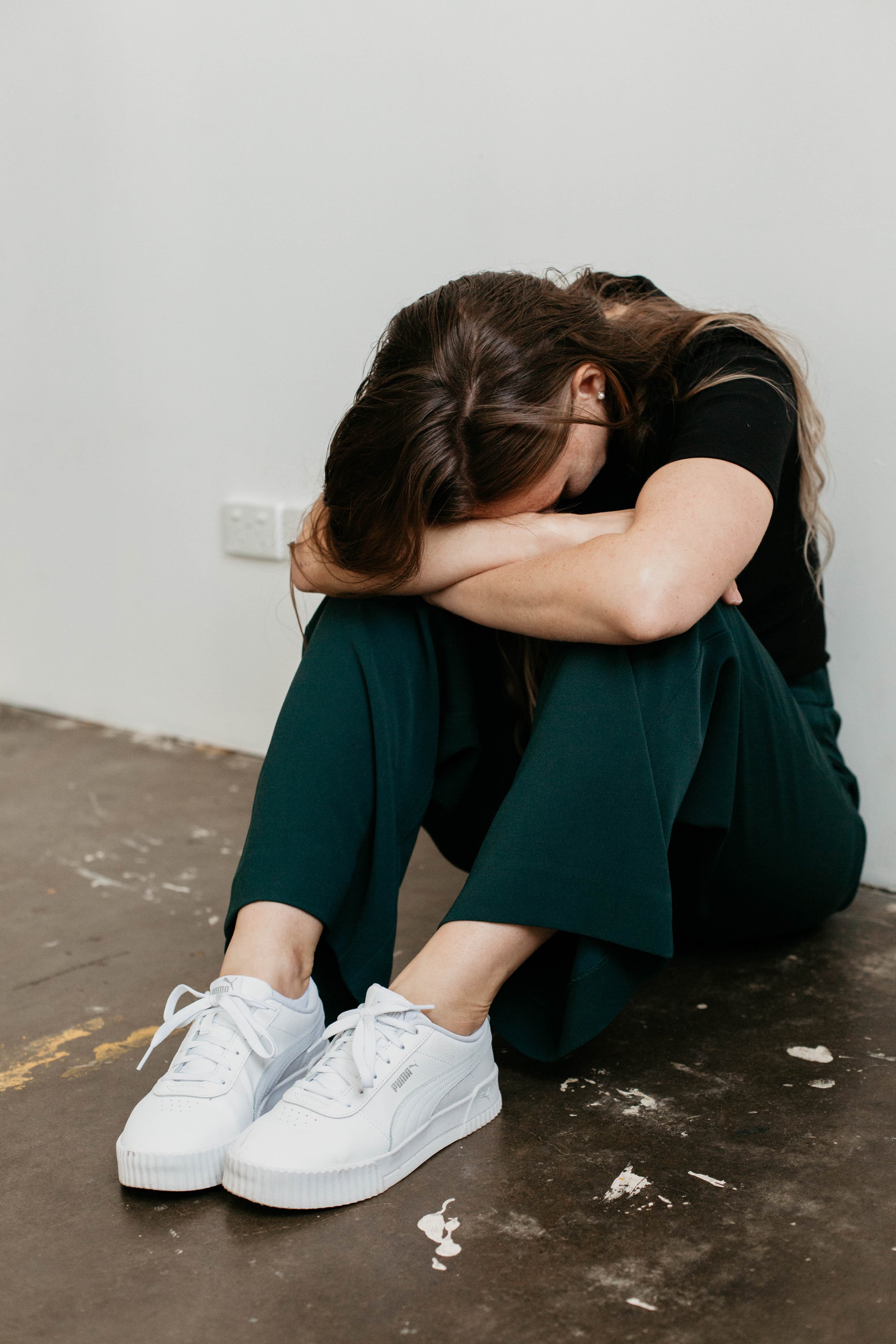
Anxiety
What is anxiety?
Anxiety is a normal and natural reaction that everyone experiences at different times in our lives. We can all feel anxious in situations if we feel threatened or in danger in any way. Not all anxiety has a negative impact on us like when you are doing something new or risky like crossing a busy road.
One in seven Australians is currently experiencing an anxiety condition.
14.4% of Australians aged 16 to 85 have experienced an anxiety disorder in the last 12 months. This is equivalent to 2.71 million people today.*
Anxiety is your body’s way of telling you something is affecting or impacting on you and can impact your thoughts, feelings, body, behaviour or actions.
When someone is feeling anxious they can be impacted physically, emotionally, spiritually, psychologically or behaviourally. They are usually impacted by all of these at once which can make anxiety feel very overwhelming and scary for someone experiencing anxiety.
Types of Anxiety
Generalised Anxiety Disorder (GAD)
This can be excessive worry, not being able to relax or focus or enjoy what is happening in your life. You may find it difficult to have positive relationships with others who do not understand what anxiety is like and how it affects you which can add to the anxiety.
Agoraphobia
You may be fearful of being in a situation or environment where you can escape from and you may experience a panic attack. This can include open spaces, crowded places, leaving your room/home and what is familiar to you.
Specific Phobia
This anxiety disorder can affect people who have an intense fear of a particular situations or objects. This may be a fear of airplanes, thunderstorms, heights, animals or insects such as dogs or spiders. Fear of needles, hospitals, dentists are all examples of specific phobia that cause anxiety for people.
Panic Attacks
Panic attacks usually come on suddenly and the person has unreasonable feelings of fear and anxiety that cause physical symptoms like a racing heart, fast breathing or short of breath, feeling like you are choking or nauseous, dizzy or lightheaded or sweating or hot and cold flushes. This in itself can be a frightening experience and can be debilitating and immobilising for the person. Often panic attacks are unpredictable and occur without warning and often there are no clear triggers.
Panic Disorder
Panic Disorder is a diagnosable condition when someone experiences recurring, frequent and unexpected panic attacks. Some people experience a panic attach once or twice in their lives, this is not common and not diagnosed as panic disorder.
Social Anxiety
For people who have a social anxiety they may have a fear of social situations such as meeting new people, going to a new place, having to talk to people, eating or drinking in front of people, and being out of their familiar surroundings. They may find it difficult feeling like they are the centre of attention, being watched and judged by others, dealing with people in authority, entering a room where there are other people they don’t know or speaking or reading in front of others.
Having social anxiety can make people feel overwhelmed and they may avoid situations mentioned above. They can play these scenarios over and over in their mind and feel like they can’t stop them. This will have a significant impact on their day to day wellbeing.
Perinatal anxiety
Its normal and understandable to feel anxious about being a new parent. When those feelings become more frequent, you are lacking in sleep, you may feel constantly on edge, consumed by worry and you are finding it hard to do daily tasks, you may be experiencing a form of anxiety called Perinatal anxiety.
Like all types of anxiety, seeking help and support is the first step in recovery, health, wellbeing and managing the symptoms and affects of anxiety.
How to deal with anxiety
There are a variety of support options for people experiencing anxiety. Firstly knowing that there are many people like yourself that experience anxiety so you are not alone can be reassuring.
All anxiety disorders are treatable with the right support.
Talking to a Doctor/GP can be a first step in acknowledging what is happening and getting some support. They can work with you or refer you on to a specialist mental health professional such as a counsellor, psychologist or psychiatrist for treatment short or long term as needed.
References:
*Australian Bureau of Statistics https://www.abs.gov.au
